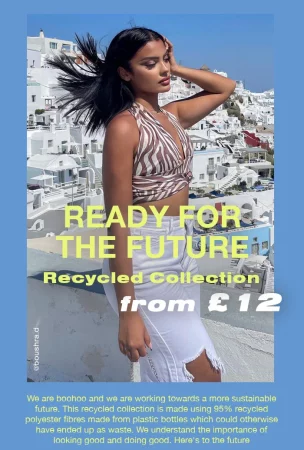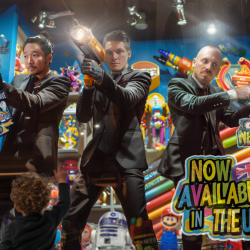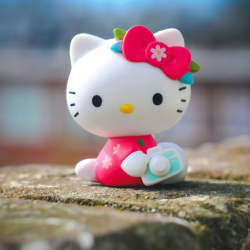It’s fair to say that everyone tells a white lie every now and then
Laughing at an unfunny joke. Telling someone, ‘I’ll call you later,‘ with no intention to do so. Usually, white lies are well-intended and don’t have a significant impact. Sometimes, a moment of dishonesty can make the world a better and kinder place. However, not all little lies are white. Increasingly, they’re green.
Greenwashing — or misleading claims about the positive environmental impact of a company — has likely reached every consumer’s repertoire because, unfortunately, many companies are partaking. The reason is, for one, that the urgency to tackle climate change is more crucial than ever, and sustainability sells.
However, it takes a lot of time, effort and investment to implement the necessary changes, such as becoming ‘carbon neutral’ or achieving ‘net zero’ emissions. Thus, companies might tweak the truth to make it look like it’s much closer to hitting that target than it is.
Unfortunately, in the fashion industry, greenwashing is particularly prevalent. A recent screening of sustainability claims in the textile, garment and shoe sectors suggested that 39% could be false or deceptive. Big brands like ASOS, H&M and Boohoo have been investigated for making potentially false claims about their green credentials.
The problem with greenwashing is that it’s not a harmless lie. This kind of business tactic deceives customers into thinking that they are doing good for the environment when they are doing the exact opposite. The result for consumers is that they are putting their hard-earned cash into lies, and in turn, they are harming the environment even if they are actively trying not to.
Some of these tactics are also difficult to catch
For example, one tactic is when a business uses the imagery of leaves and nature to insinuate that its product is kind to the environment. Boohoo was caught out for precisely this when its ‘sustainable’ line with Kourtney Kardashian last year included a leaf and the slogan, ‘Ready for the Future‘, on its products. Most of the time, these products didn’t meet the brand’s own sustainability guide, which states that the garment must be made of ‘more than 20 per cent of our stated “better materials”‘.

As a result, the brand went under the aforementioned investigation by the Competition and Markets Authority (CMA) for misleading consumers. Arguably, though, the damage was done, millions of consumers would have jumped on the launch, and likely many of them would have felt good about the fact they were buying into (or supporting) a ‘sustainable’ line.
Sadly, those most unfairly impacted by this are the companies enacting good sustainable practices. Either because they’re competing with corporations that not only don’t have them, but are capitalising on the fact (such as cheap labour) or because consumers are starting to find it difficult to believe that any company they purchase from is genuinely green. Due to the deception, research by GFK found that a mere 25% of consumers trust the claims of FMCG brands about their environmental practices. Worryingly, this is just a single industry.
At Célibataire, sustainability and ‘conscious design’ is at the core of our business and what we do. However, the team would never suggest that we have all the answers. No one does. If a business says they are 100% sustainable, they’re probably lying because, right now, it’s a learning curve. The most realistic claim from a brand would be that it prioritises sustainability, and is committed to learning as much as possible to continue finding ways to improve and grow. This level of honesty will also support bridging that truth gap between brands and consumers regarding green. All the deception and lies are not helping with the one true goal, genuinely saving the planet. We’d invite all companies to try a little honesty. Customers — and consequently their bottom line — will thank them for it.
Featured image: Paul Blenkhorn / Unsplash




























